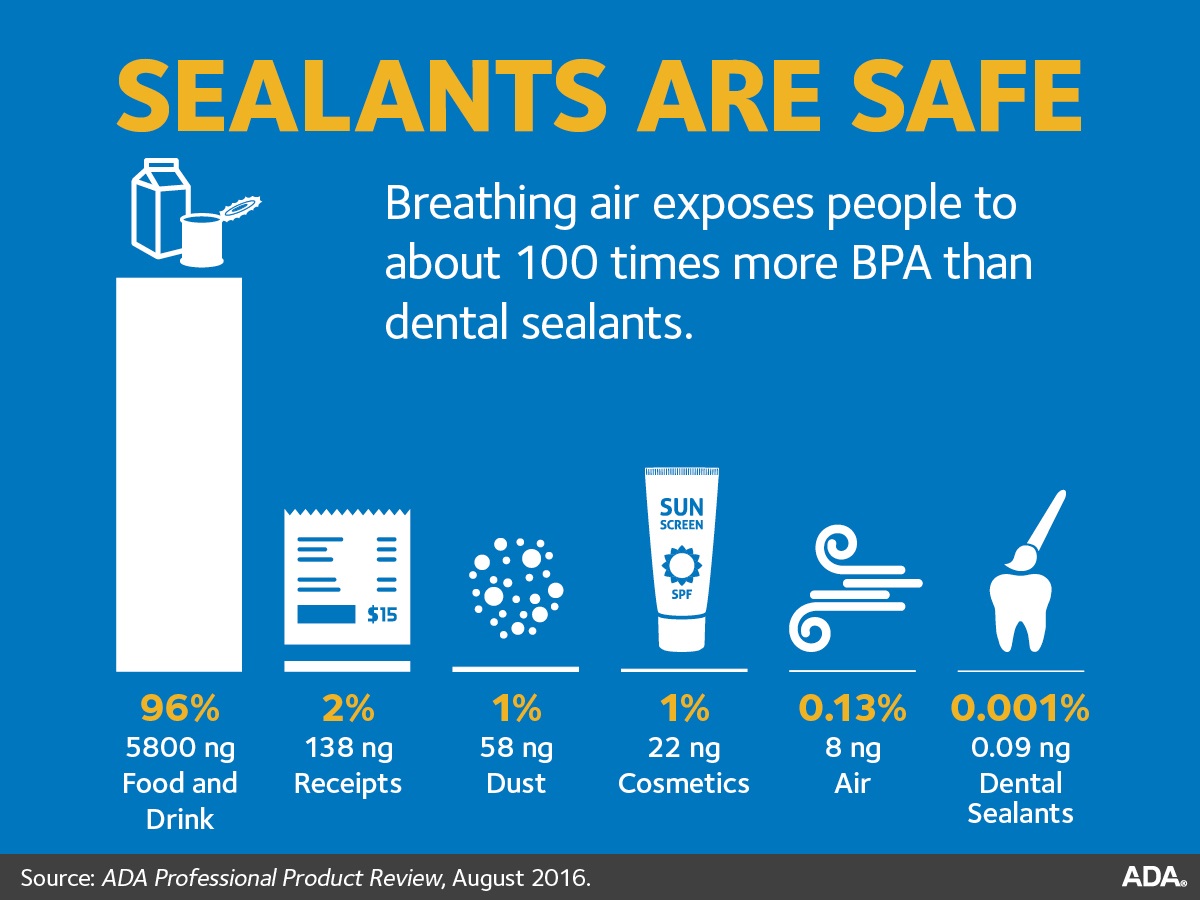Why are Sealants Important?
Did you know that 80-90% of cavities occur on the biting surface of a tooth? That’s where dental sealants can help! Drs. Rubin and Sentelle take a moment to explain the benefits of dental sealants.
Dental Sealants Prevent Cavities
What are Sealants?
Sealants are a liquid resin material usually applied to the chewing surfaces of the back teeth where decay occurs most often. They are invisible, so no one will ever know you have them in your mouth! When the resin is applied and hardens, it fills up any deep grooves on the tooth’s surface. We primarily put sealants on adult teeth, but could also put them on baby teeth, if the grooves are really deep. People who have deep grooves in their back teeth are more likely to be at risk for cavities and other tooth damage. Dental sealants act as a barrier to prevent cavities, and protect these vulnerable areas by “sealing out” plaque and food. The earlier you can place this protective barrier on the surface of your tooth, the less likely you are to have a cavity.
How are Sealants Applied?
The procedure is painless and only takes a few minutes in our dentist office. No tooth structure is removed, and no injections or local anesthetic is required. First we will clean and dry the biting surface of the tooth. Then place a gel, known as an “etchant” on the tooth. The gel prepares the surface of the tooth and the sealant. Once the gel has been rinsed off and the tooth has been dried, we will place the bonding agent, a liquid plastic resin, in the grooves of your tooth. A special high-intensity blue light will harden, or “cure” the plastic. This plastic resin bonds into the depressions and grooves (pits and fissures) and forms the sealant. The key to successful sealant placement is keeping the tooth dry and preventing saliva from contaminating the biting surface while the sealant is being placed. For this reason, very young children may not be good candidates. You will still need to brush and floss, but the dental sealants help provide an extra layer of protection against cavities!
Are Sealants just for Kids?
Sealants are generally applied on children’s teeth between the age of 6-14 years old, depending on when their molars come in. Sealants can be applied to pre-molars and permanent molars, and sometimes other teeth, including baby teeth, depending on their structure. If teeth have a lot of grooves that makes it difficult to protect them from decay. Sealing them early can prevent premature loss of teeth, which can in turn cause issues for the permanent teeth when they begin to grow. The likelihood of developing pit and fissure decay begins early in life, so children and teenagers are obvious candidates, but adults can benefit from sealants as well!
Are Dental Sealants Safe?
According to the Centers for Disease Control and Prevention, cavities remain the most common chronic disease of children 6 to 19 years of age! A sealant’s ability to help prevent cavities and thus more extensive dental treatment in the future makes it a very cost-effective form of preventive dental treatment. Studies have shown that with appropriate follow-up care and maintenance, sealants can be 80-90% effective in reducing cavity formation. Sealants will often last for several years before they need to be reapplied. As long as the sealant remains intact, the tooth surface will be protected from decay. BOTTOM LINE: Dental sealants are an inexpensive way to prevent cavities before they start, saving you money in the long run!

Got more questions? We're here to help!
If you have any questions about whether sealants would be an appropriate treatment for your child, please call (214) 618-5200 during our office hours and our team will be happy to answer questions or book an appointment.
👉 Before you arrive for an appointment, please read our New Office Procedures and complete our COVID-19 Screening Form. Also review these procedures with your child(ren), so they are prepared too.
